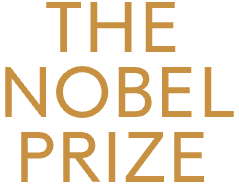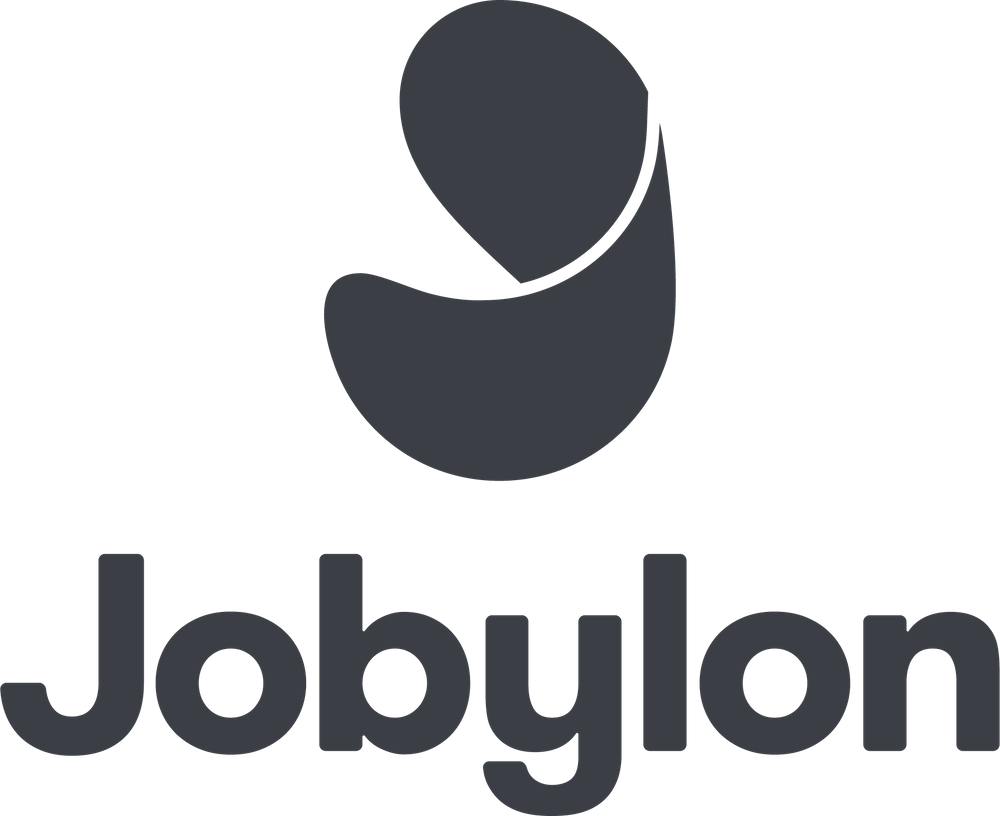What do black holes, the world’s best love story and penicillin have in common?
What we do – and why
The Nobel Prize encourages people to want to know more about how the world works, question old truths and find new solutions. The achievements of the laureates show that positive change is possible through new ideas, collaboration and hard work.
We want to awaken interest in science, literature and peace work through exhibitions, public events, school activities and our digital channels. We want to inspire everyone we meet to take action to change society for the better.
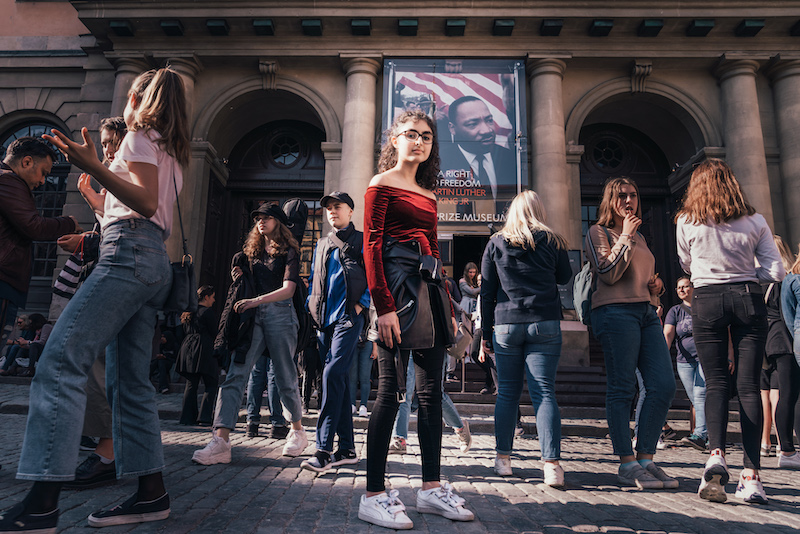
Students involved in a project about Martin Luther King, Jr. at the Nobel Prize Museum, Stockholm. Photo: Clément Morin
Ideas changing the world
Since 1901, the Nobel Prize has rewarded and celebrated science, literature and peace efforts. In his will, Alfred Nobel wrote that the prize should be awarded to those who worked for “the greatest benefit to humankind”.
This is the core of our outreach activities, developed to engage, inspire and spread knowledge based on the Nobel Prize as well as the discoveries and achievements of the laureates.
Nobel mentioned five prize categories in his will – physics, chemistry, physiology or medicine, literature and peace. In 1968, the Sveriges Riksbank Prize in Economic Sciences in memory of Alfred Nobel was established.
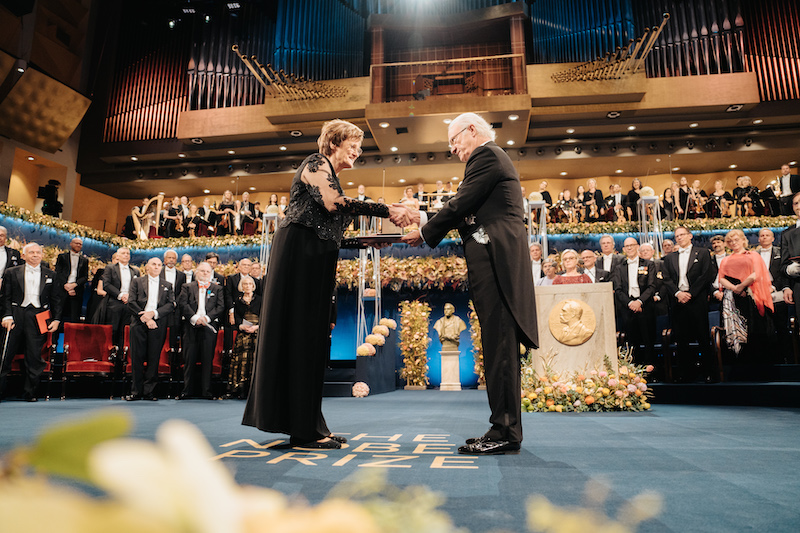
Katalin Karikó accepting the Nobel Prize in Physiology or Medicine, 2023. Photo: Clément Morin
Dialogue and insights
The Nobel Prize makes people think, seek new knowledge and challenge each other’s ideas. The breadth of topics covered by the prize contributes to interdisciplinary dialogue on issues that are crucial to the future of humanity.
Our museums in Stockholm and Oslo, offer exhibitions, talks and lectures, school activities, public events and interactive experiences. The Nobel Prize’s public events, organized worldwide, enable dialogue between students, the public and Nobel Prize laureates.
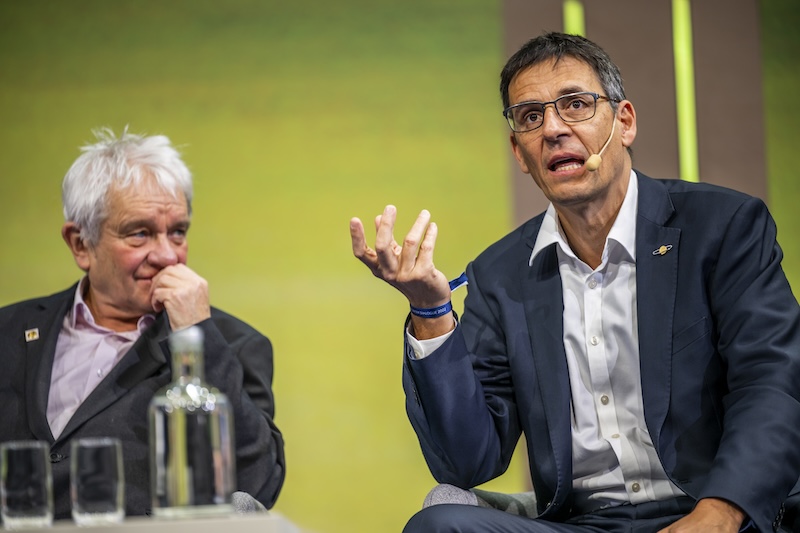
Nobel Prize laureates Paul Nurse and Didier Queloz at the Nobel Week Dialogue in Stockholm. Photo: Nanaka Adachi.
A new house for science, culture and dialogue
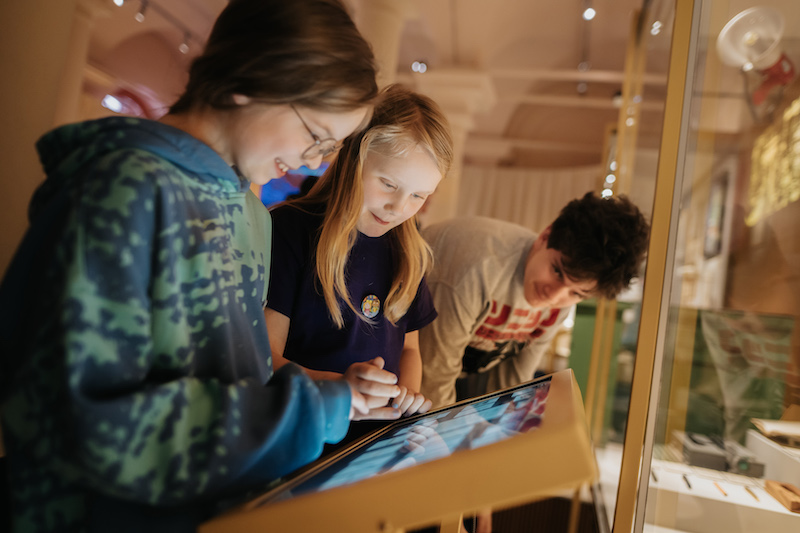
The Nobel Prize Museum has extensive programs for schools and different activities for families already today. Photo: Clément Morin
Sweden’s new epicenter for science, culture and dialogue, will be built at Slussen in Stockholm. At the Nobel Center, visitors will encounter exhibitions, take part in school programs, experience art and culture, listen to lectures and engage in conversations about the grand challenges of the future. It will be a place for Nobel Prize laureates, Stockholmers, tourists, students and their teachers.
David Chipperfield Architects is the architect for the Nobel Center. The local architect is Sweco. The Erling-Persson Foundation and the Knut and Alice Wallenberg Foundation are financing the construction of the building together with the Nobel Foundation. Construction is planned to start in 2027 and inauguration may occur during 2031.
Outreach activities and Alfred Nobel’s legacy
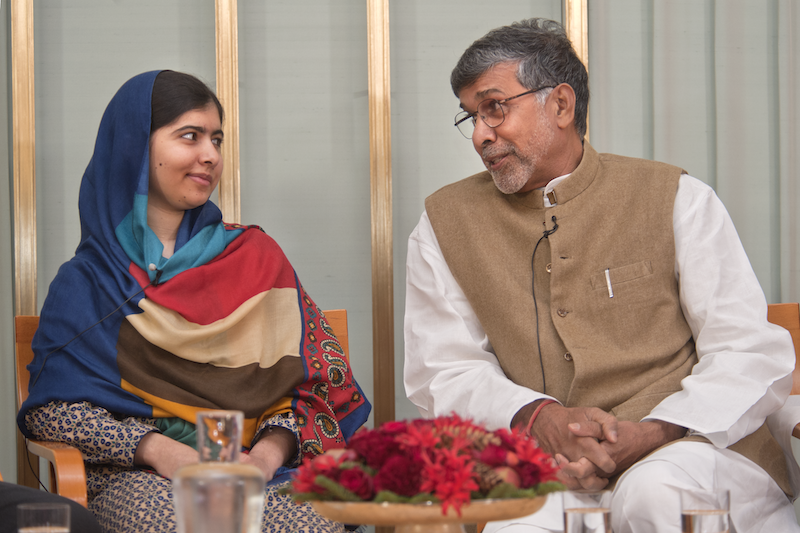
The inspiring work that earned Malala Yousafzai and Kailash Satyarthi the Nobel Peace Prize is featured in our exhibitions. Photo: Ken Opprann
Today, several organizations and activities spread knowledge about the Nobel Prize through events, exhibitions, educational initiatives and digital activities:
- Nobel Prize Museum in Stockholm
- Nobel Peace Center in Oslo
- International meetings with laureates and students, organized by Nobel Prize Outreach
The Nobel Prize organisations
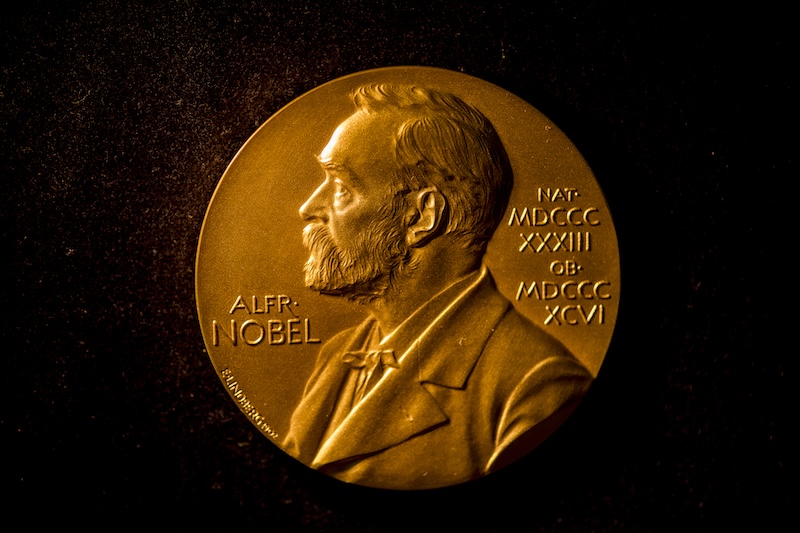
The Nobel Prize medal. © Nobel Prize Outreach. Photo: Alexander Mahmoud
The Nobel Foundation has the ultimate responsibility for fulfilling the intentions of Alfred Nobel’s will. This means managing Alfred Nobel’s fortune and ensuring that the academic institutions that select the Nobel Prize laureates are independent in their work. The Nobel Foundation is also responsible for the Nobel Prize ceremony and the Nobel Prize festivities in December.
The Nobel Prize Museum, Nobel Prize Outreach and the Nobel Peace Center are all externally funded, for example through entrance fees, grants from government or local authorities, educational organisations, philanthropic organisations or through partnerships with companies. These companies have no influence over, or access to, the Nobel Prize nomination or selection procedures.
The Nobel Prize in numbers
Designed & Powered by Jobylon
Be the first to know about new job openings!
Would you like to be among the first to know about new job openings? Join our email list, and we’ll notify you as soon as new career opportunities become available.
